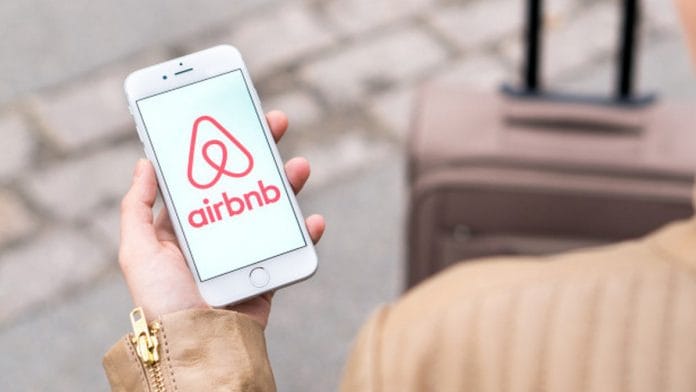Everything can look easy in hindsight, but with the hard numbers now available to show the magnitude of home-sharing upstart Airbnb Inc.’s remarkable financial recovery from the existential crisis it had earlier this year, it’s hard not to be impressed.
Late Monday, the San Francisco-based startup filed its initial public offering prospectus, showing that it generated more than $200 million in net profit for the three months ended in September. The results came after the company racked up nearly $900 million in aggregate losses in the prior two quarters following shelter-in-place orders from governments that decimated the travel industry. In the spring, during the worst of the crisis, Airbnb was forced to lay off 25% of its workforce and raise $2 billion of expensive debt financing while slashing other operating expenses.
This is where the story got interesting. As chronicled by the Wall Street Journal, CEO Brian Chesky noticed how some city-based customers were avoiding international air travel and renting homes in nearby suburban and rural areas instead. So the executive decided to change the strategy and take advantage of the shift in customer behavior by redesigning Airbnb’s website, altering the platform’s algorithm to surface more local offerings. And it worked. Domestic business surged as consumers made more trips close to home — whether it be for time off or to find work-from-home locations.
The prospectus provides the evidence. Airbnb said its domestic business — where a renter doesn’t cross a country border — rose to 77% of its total mix in September, compared with just 52% in January. Further, it noted the most resilient areas had these characteristics: domestic, shorter distance, and long-term stays of at least 28 nights.
That brings us to today. Covid-19 cases are surging around the world, resulting in more lockdown orders as countries attempt to mitigate the spread. Airbnb admits it won’t be immune. In its filing, the company cautioned that it expects a larger year-over-year bookings decline in the current holiday quarter compared with what it posted in the three months ended in September.
But whether the travel industry rebounds rapidly in the first half of next year on the back of a vaccine or it takes longer to get the outbreak under control, the chances Airbnb will succeed over the long run are strong. Venture capitalists often say the quality of a team and its ability to make smart decisions under enormous pressure is more important to a company’s future than any financial metrics. That sure sounds like Airbnb.- Bloomberg
Also read: Work from home era sees surge in digital nomad jobs






